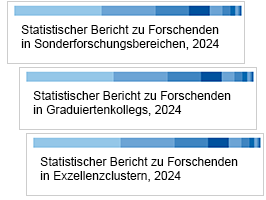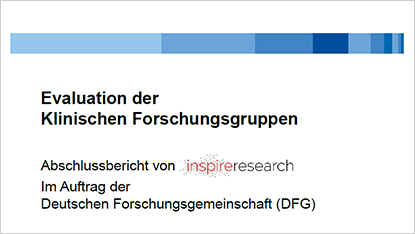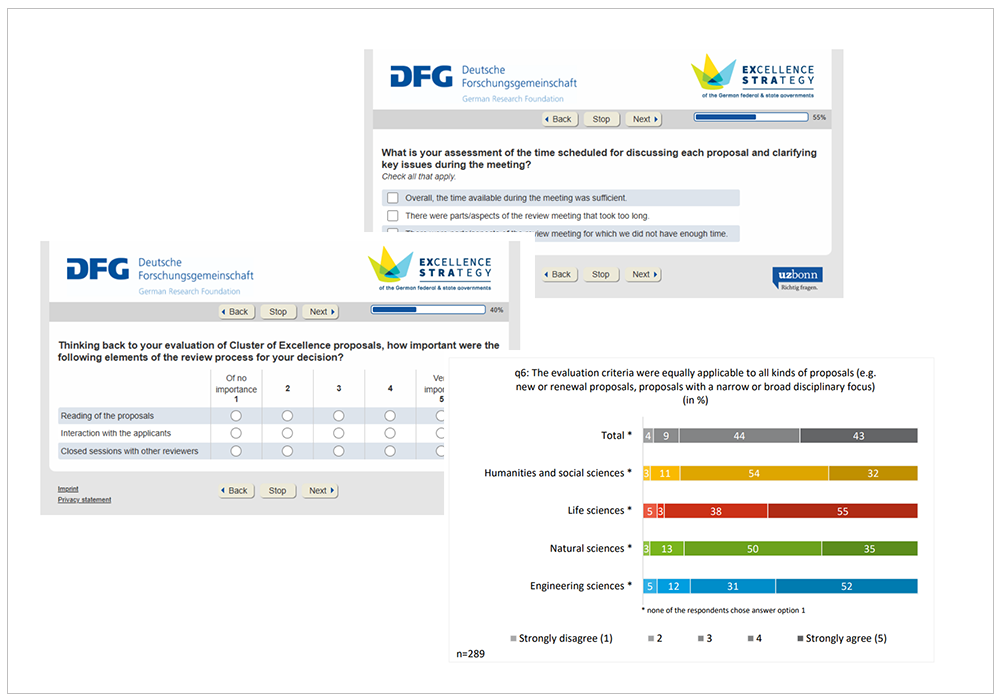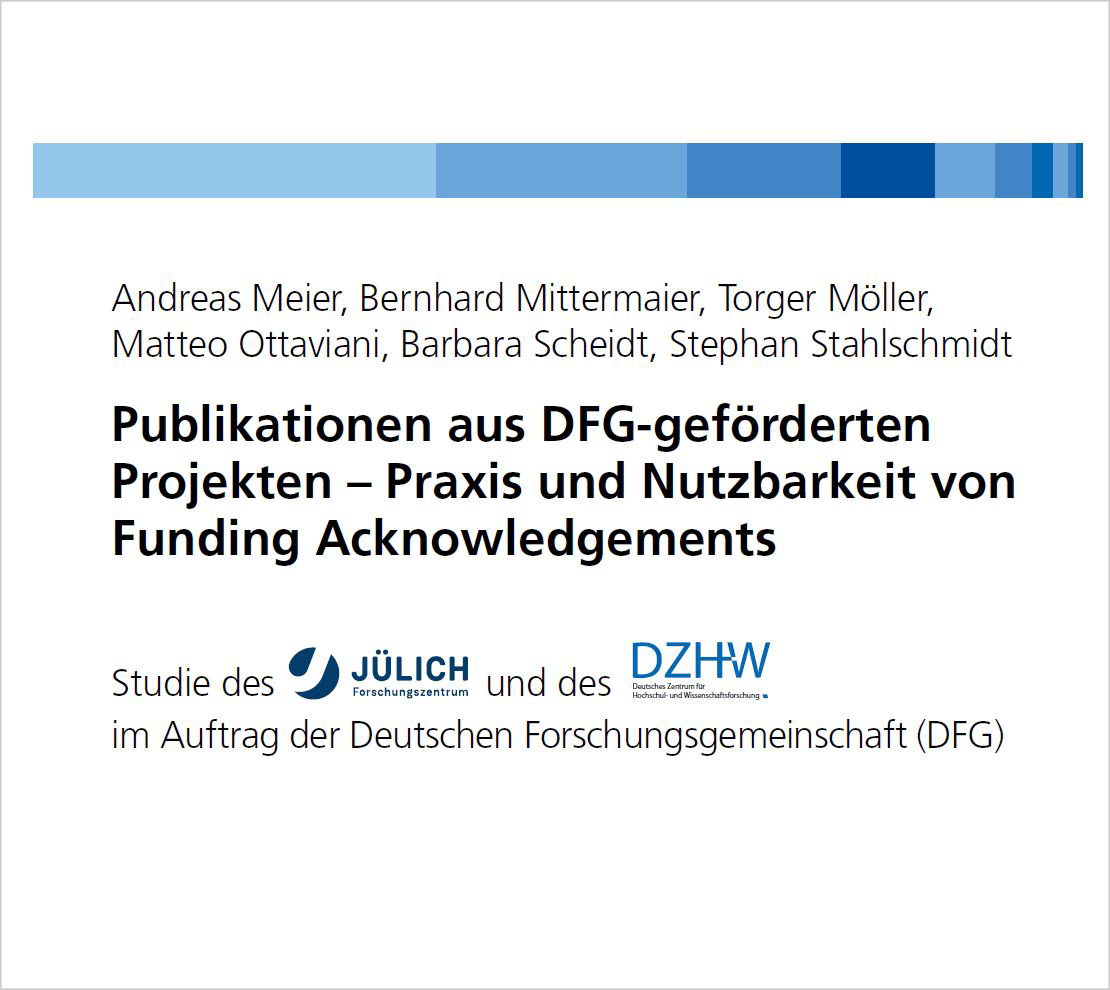Evaluation Studies and Statistical Reports
With the evaluation of a DFG funding programme, it is possible to (a) assess the success of a process and (b) lay an empirical basis for DFG funding policy. In doing so, evaluative studies utilise sociological methods, such as statistical analyses, surveys or bibliometric assessments.
Further studies and reports

Three statistical reports on researchers in Collaborative Research Centres, in Research Training Groups and in Clusters of Excellence provide information on the personnel structures in the DFG’s Coordinated Programmes. They focus on their distribution by gender, their place of employment before joining the team and the funding of these researchers. The considered time span depicts developments in the last five years and thus includes the years of the coronavirus pandemic. Read mor(interner Link)

Clinical Research Units aim to promote research collaborations in disease- or patient-oriented (translational) clinical research. For this purpose, scientific working groups and structures are established in clinical facilities on a long-term basis. An evaluation study conducted by inspire research sheds light on the extent to which the funding instrument has achieved its stated goals. Based on this, an Evaluation Commission has prepared a statement containing recommendations for the further development of the programme. Read mor(interner Link)

© AdobeStock
The COVID-19 pandemic posed major challenges to the research community in 2020 and 2021. These also had an impact on DFG’s funding activities, as shown in the statistical report. The report provides facts and figures on grant applications, international cooperation and peer review during the height of the pandemic. It furthermore highlights the scope and the topics of research into pandemics, and COVID-19 in particular. Read mor(interner Link)
On the following page, you will find older studies and report(interner Link).
Contact
| E-mail: | Anke.Reinhardt@dfg.de |
| Telephone: | +49 (228) 885-2588 |


